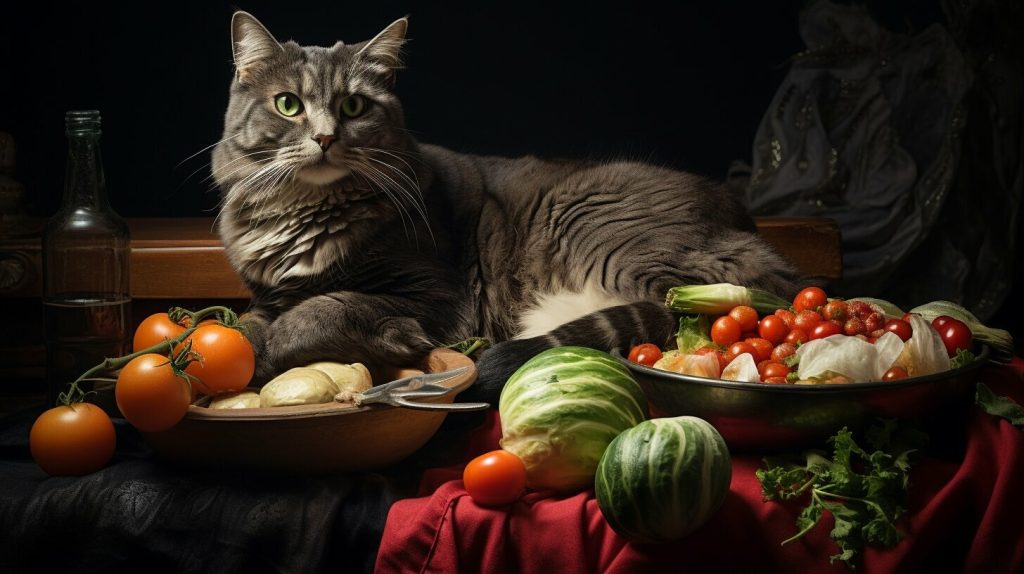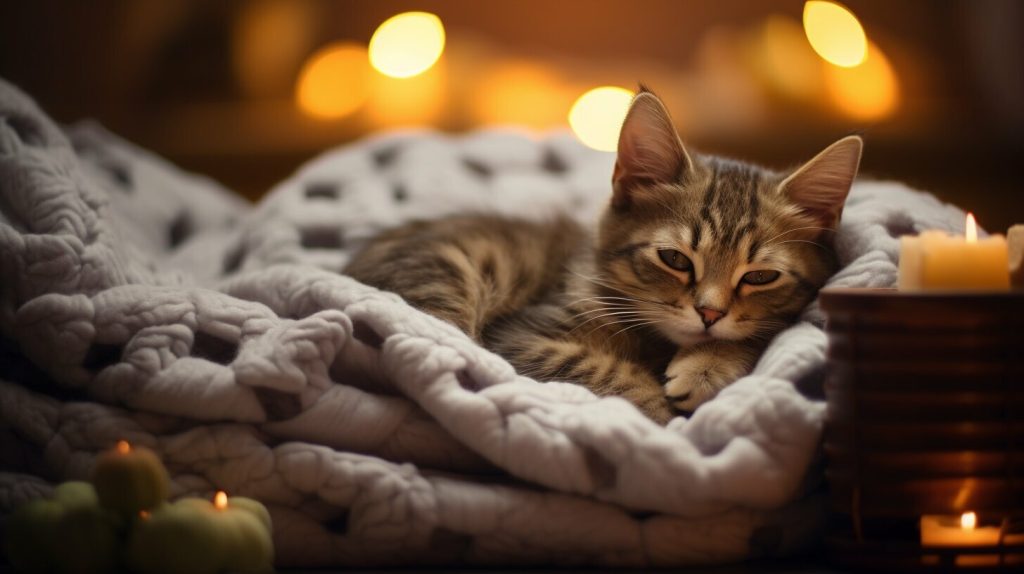Last Updated on September 22, 2023
Welcome to our guide on cat pregnancy duration! As a cat owner, it’s important to understand the unique journey that felines experience during their gestation period. The length of cat gestation can vary, and there are several factors that can affect it.
On average, cats carry their kittens for approximately 63-65 days, or around 9 weeks. However, some cats may carry their kittens for as little as 58 days or as long as 72 days. Breed and age can also play a role in the length of cat pregnancy, with larger breeds generally having a longer pregnancy than smaller breeds.
During the gestation period, your cat will go through several stages of pregnancy, each with its own unique characteristics. These stages include the embryonic stage, fetal stage, and final stages leading up to labor and delivery.
In the next section, we will delve deeper into the gestation period of cats and the signs and symptoms of pregnancy to look out for.
- 1 Understanding Cat Pregnancy: Gestation Period and Signs
- 2 Preparing for Labor: Birth and Delivery
-
3
FAQ: Answering Common Questions about Cat Pregnancy
- 3.1 How do I know if my cat is pregnant?
- 3.2 How do I take care of a pregnant cat?
- 3.3 What should I do if there are complications during my cat’s pregnancy?
- 3.4 When will my cat give birth?
- 3.5 How can I create a safe and comfortable environment for my cat to give birth?
- 3.6 Is it safe to spay my cat while she is pregnant?
Understanding Cat Pregnancy: Gestation Period and Signs
Cat pregnancy, also called feline gestation, lasts an average of 63 to 65 days from the moment of conception. This duration varies from one cat to another and depends on several factors such as breed and age. For example, Siamese cats tend to have shorter pregnancies of around 63 days while Persians and other long-haired cats can carry their kittens for up to 70 days.
It is essential to identify the signs of cat pregnancy and monitor your cat’s health during the gestation period, especially if it is her first litter. The signs of cat pregnancy include:
- Increase in appetite
- Change in behavior
- Enlarged nipples and belly
- Weight gain
- Nesting behavior
If you suspect that your cat may be pregnant, it is crucial to take her to a veterinarian for confirmation and to receive proper prenatal care. Your vet can perform an ultrasound or palpation around the third week of pregnancy to confirm whether your cat is pregnant.
Calculating the due date of your cat’s litter can be quite tricky. However, the gestation period can provide a rough estimate. The first four weeks of gestation are the embryonic stage, followed by the fetal stage that lasts up to nine weeks. During the fetal stage, your cat will gain most of her weight and begin preparing for labor and delivery.
How Long Do Cats Carry Kittens?
The average length of cat pregnancy is around 63 to 65 days, but it can vary depending on breed and age. Beyond 70 days, it is possible that the pregnancy may be overdue and require veterinary intervention.
During the last week of pregnancy, it is essential to monitor your cat for signs of labor. A decrease in appetite, restlessness, and nesting behavior are common signs that your cat is preparing to give birth. It is crucial to create a comfortable and safe environment for your cat to give birth.
Understanding the gestation period and the signs of cat pregnancy is essential for ensuring that your cat and her litter remain healthy. Proper prenatal care, a nutritious diet, and regular veterinary checkups are crucial components of caring for a pregnant cat.
Caring for a Pregnant Cat: Diet and Health
Proper care and nutrition are essential during cat pregnancy to ensure the health of both the mother and her litter. As the pregnancy progresses, the cat’s nutritional needs change, and it becomes necessary to adjust their diet accordingly.
A high-quality, well-balanced diet is vital at this stage as it provides the necessary nutrients for the kittens’ development and the mother’s health. A diet consisting of lean protein, vitamins, minerals, and fats is recommended.
During the first trimester, the cat’s appetite may decrease, but as the pregnancy progresses, their appetite will increase. It is best to feed the cat small, frequent meals throughout the day rather than one or two large meals.
It is essential to provide clean and fresh water at all times, as dehydration can cause health problems for the mother and her litter.
It is advisable to avoid giving medication unless prescribed by a veterinarian as some medications can harm the developing fetuses.
Another important aspect of caring for a pregnant cat is monitoring their health. As the pregnancy progresses, it is essential to look out for signs of complications such as vomiting, diarrhea, or lack of appetite, and to seek veterinary attention if necessary.
Proper care and nutrition are essential during cat pregnancy to ensure the health of both the mother and her litter. By monitoring the cat’s diet and health, you can help ensure a safe and successful pregnancy.
“A high-quality, well-balanced diet is vital at this stage as it provides the necessary nutrients for the kittens’ development and the mother’s health.”
Preparing for Labor: Birth and Delivery
As your cat’s due date approaches, it’s important to start preparing for labor and delivery. Here’s what you need to know:
Signs of Labor
One of the first signs of approaching labor is nesting behavior. Your cat may become more restless and start seeking out a quiet, secluded space to give birth. Other signs of labor include:
- Loss of appetite
- Increased vocalization
- Contractions
- Restlessness
If you notice any of these signs, it’s important to keep a close eye on your cat and be ready to assist with the delivery if necessary.
The delivery process
The delivery process for cats usually lasts between 2-6 hours. During this time, your cat will likely experience strong contractions and may vocalize or pant. The first kitten should arrive within an hour of active labor, and subsequent kittens should be delivered every 30-60 minutes. If your cat seems to be having trouble delivering a kitten or if labor lasts longer than 6 hours without any kittens being born, it’s important to contact your vet.
Creating a Safe and Comfortable Environment
To help your cat feel relaxed during labor and delivery, it’s important to create a safe and comfortable environment. This can include:
- Providing a quiet, private space for your cat to give birth
- Using clean, soft bedding for your cat and her kittens
- Keeping the room at a comfortable temperature
- Providing fresh water and food for your cat during breaks between deliveries
Remember to also keep a close eye on your cat and be ready to assist with the delivery if needed. With proper care and attention, your cat should be able to deliver her kittens safely and easily.
FAQ: Answering Common Questions about Cat Pregnancy
As a cat owner, it’s essential to know the ins and outs of cat pregnancy. Here are some answers to commonly asked questions:
How do I know if my cat is pregnant?
There are several signs that your cat may be pregnant, including a swollen belly, increased appetite, and changes in behavior. However, the most reliable indication is through a veterinary exam.
How do I take care of a pregnant cat?
It’s crucial to provide your pregnant cat with a healthy, well-balanced diet and plenty of clean water. Also, ensure your cat has a comfortable and quiet space to rest. Regular veterinary check-ups are also essential.
What should I do if there are complications during my cat’s pregnancy?
If you suspect any problems during your cat’s pregnancy, such as bleeding or discharge, contact your veterinarian immediately. It’s best to seek professional advice as soon as possible.
When will my cat give birth?
The gestation period for cats is typically around 64 to 67 days. However, this may vary depending on the breed and individual cat. You may notice some changes in your cat’s behavior or physical appearance in the days leading up to labor.
How can I create a safe and comfortable environment for my cat to give birth?
Choose a quiet and warm area for your cat to give birth. It’s also crucial to provide a clean and comfortable nesting area for your cat and her litter. Keep an eye on your cat during the delivery process, but try not to intervene unless necessary.
Is it safe to spay my cat while she is pregnant?
No, it’s not safe to spay a pregnant cat. If you suspect your cat is pregnant, it’s best to delay spaying until after she gives birth and weans her litter.
By being knowledgeable about cat pregnancy, you can ensure the health and safety of your feline friend and her litter. Always consult with your veterinarian for professional advice and assistance throughout the process.











